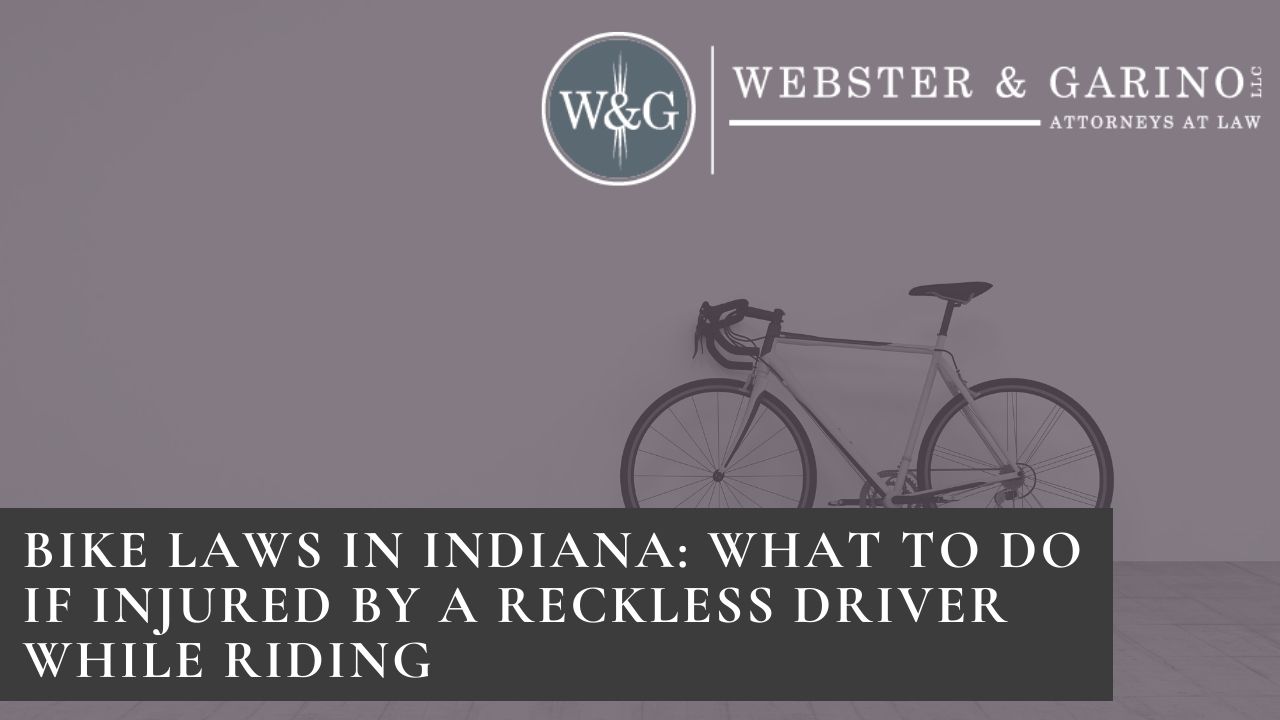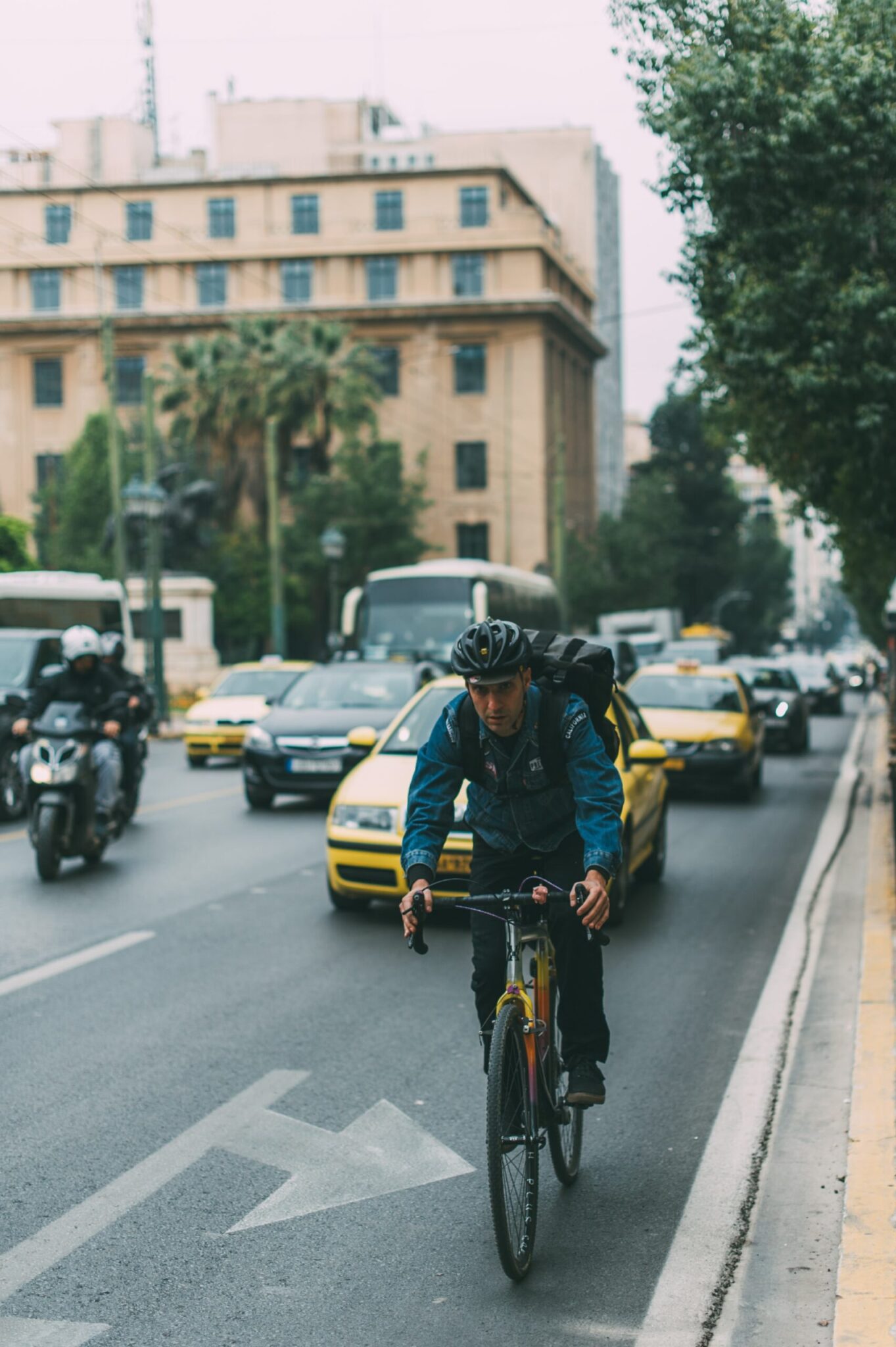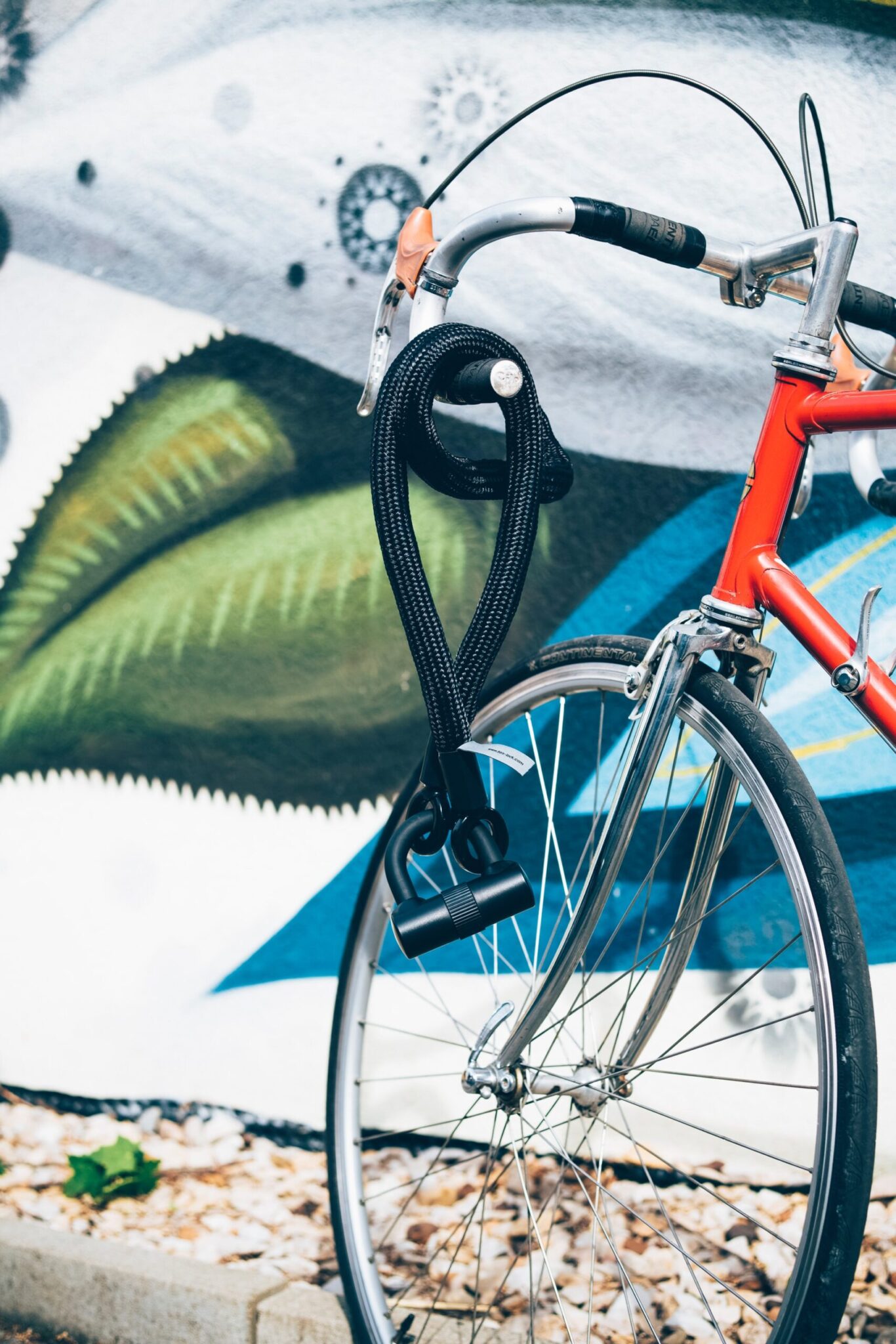Bike Laws in Indiana: What to Do If Injured By a Reckless Driver While Riding

Bike Laws in Indiana – 2021 Guide
Bicycling feels like an informal mode of transportation because most people start doing it as children. Even so, the State of Indiana does regulate bicycling. Similar to motor vehicles, the rules promote traffic orderliness, safety, and accountability for recklessness.
Your physical exposure on a bicycle dramatically increases your chance of injury should an accident occur. This fact makes adherence to safety regulations necessary, but no amount of personal responsibility can entirely protect you from another person’s negligence. When you suffer a traffic accident on a bicycle, you may have the legal right to collect damages from the responsible party. Who was at fault determines who pays for injuries and property damage. A personal injury lawyer can help you document the losses that a reckless driver inflicted on you.
Rights and Responsibilities of Bicyclists
The Central Indiana Bicycling Association presents many state and municipal laws on the subject. Of primary importance is Indiana Code Title 9 Article 21, where Section 2 states that bicyclists have the same rights and duties on the road as someone driving a vehicle. For the most part, this means that drivers of motor vehicles and bicyclists must follow the same traffic rules. A personal injury lawyer in Indiana evaluating a bicycle accident case will apply the same traffic rules that motorists must follow when looking for evidence of fault.
An interesting exception to standard traffic rules is commonly known as the dead red light rule. Because a bicycle might not trigger a sensor that switches a traffic signal, state law does allow a bicyclist to proceed through a red light if the rider has been stopped for at least 2 minutes. The bicyclist must still yield the right of way to all traffic when moving through the red light.
What are some essential bike laws in Indiana?
- Riders must only sit on actual bicycle seats.
- A bicyclist cannot transport passengers unless the bicycle is equipped to do so.
- Bicyclists cannot carry packages or objects that prevent them from keeping both hands on the handlebars.
- Bicycles must be outfitted with front and rear deflectors.
- Riding bicycles at dusk, dawn, or after dark requires the use of illuminated lamps.
- Bicyclists cannot ride more than two abreast in a lane.
- A bicycle must have functioning brakes.
Do bikes have the right-of-way in Indiana?
No overarching rule grants bicyclists the right-of-way in traffic. If you, as the bicyclist, have the right-of-way in a given traffic situation, you may lawfully proceed. If the traffic situation gives another vehicle the right-of-way, then you must yield.
Bicyclists typically have to yield to pedestrians. For example, Carmel, Indiana, specifies that bicyclists must give the right-of-way to pedestrians on multi-use paths, bicycle lanes, and roads. The bicyclists must make an audible signal, either by voice or bell, when approaching pedestrians from behind and pass them with ample room.
On the roads, Carmel also requires motorists to leave at least 3 feet of room between their vehicles and bicyclists when passing them. Statewide, the laws are not as precise about this. The municipal law could give a bicyclist injured in Carmel a stronger case for collecting compensation if hurt by a vehicle that passed too closely. A personal injury lawyer in Indiana could cite the violation of city law as evidence of negligence.

What to Do After a Bicycle Accident With a Motor Vehicle
Unless you are badly hurt and unable to function, you can take some steps at the accident scene that will help you make an injury claim for your bicycle accident. Whether on a road lane or a designated bicycle lane, you will do the same things.
 1. Call the Police
1. Call the Police
You will want the police to make a report about the accident. This is the first item in the paper trail that will document what happened to you. A police officer’s initial investigation may also identify evidence about who was at fault.
A motorist may ask you not to call the police if the accident appears minor, but this is not in your best interest. You may have worrisome injuries and not realize it. A police officer might also decide to ticket a driver for a traffic violation, which would improve your chances of collecting compensation.
- Tell the Police Your Side of the Story
Without admitting fault, ask the officer to include your view of what happened on the official report. If you were in a bicycle lane, emphasize this point because it could increase the chance of the police writing the driver a ticket.
- Talk to Witnesses
If any bystanders are present, ask for their names and contact information. You may be able to collect a brief statement from them on your phone with the video camera. Bystanders often stop to check on downed bicyclists, so engaging a witness in conversation may not be difficult.
- Take Pictures of the Accident Scene
Your camera phone offers an easy way to gather many pieces of evidence. Collect images of the accident scene, your injuries, bicycle damage, road conditions, traffic signage, and the vehicle that hit you, including its license plate.
- Ask for the Driver’s License and Insurance
Just like any other motor vehicle accident, the driver should provide you with identification and insurance information. If someone refuses to cooperate, then ask the police to request the information for the report.
- Get a Medical Evaluation
Injured bicyclists often get medical care from first responders or are transported to the hospital. If this was not the case for you, then go to your doctor or urgent care clinic. Explain that you were in a bicycle accident and ask for a medical assessment. You could have soft tissue damage, a hairline fracture, or other hard-to-detect problems that are nonetheless potentially costly.
- Preserve Evidence
Do not get your bicycle repaired right away. Its broken or bent frame offers evidence of the severity of your crash. You should also keep your helmet and clothes from the accident without washing anything.
How should I document my bicycle accident?
At your soonest convenience, you will ideally write down the experience while it is still fresh in your mind. This could save you from forgetting important details. Date the document and print it. Your notes, in addition to the police report and medical records, form the foundation of your accident claim. Your car accident personal injury lawyer will use them to illustrate your need for compensation.
Be Informed On The Steps to Take After Getting a DUI in Indiana
Understand Your Rights Before Talking to an Insurance Company
Your first instinct might be to contact the driver’s insurer and make a claim, but you should not enter into this conversation without legal support. During the conversation, an insurance company may try to get you to admit fault or minimize your injuries. An Indiana lawyer can prepare you for this conversation or even handle it directly. At Webster & Garino LLC, we will work hard to shield you from insurance tactics meant to devalue your accident. Schedule a free consultation by calling us at 317-565-1818 or contact our office.
Start at
